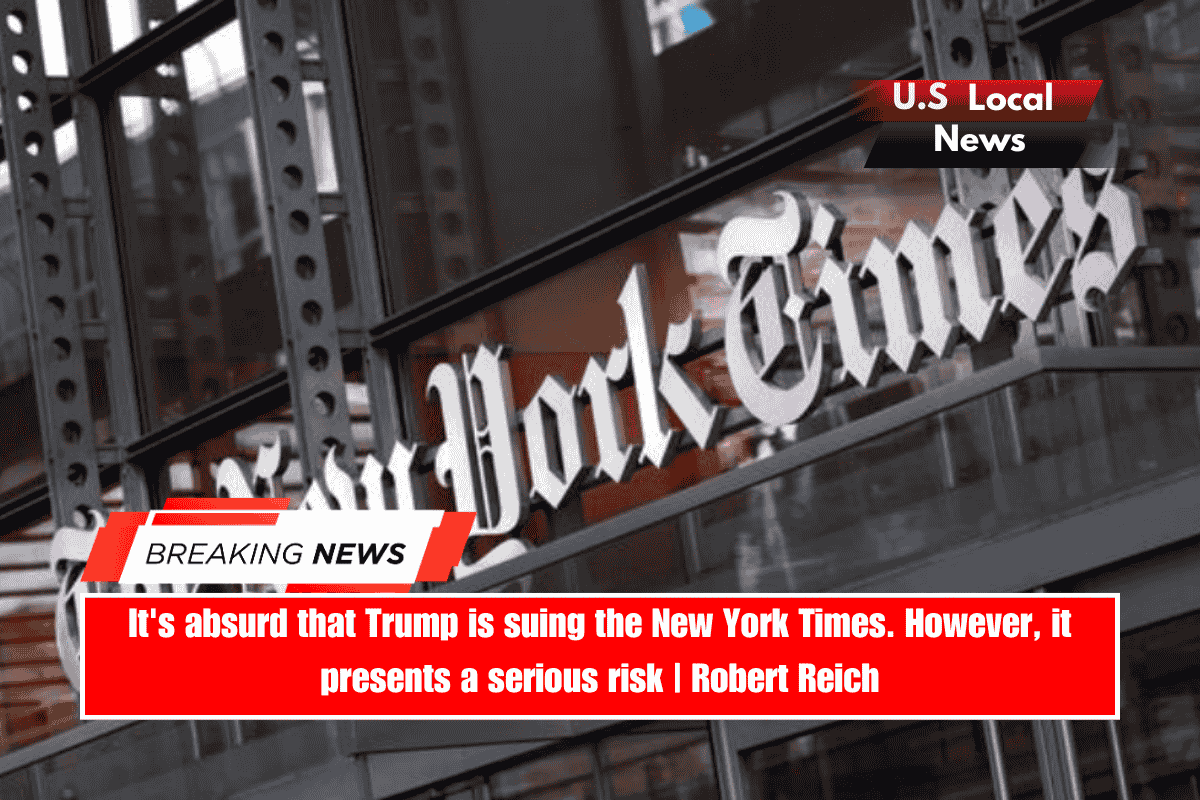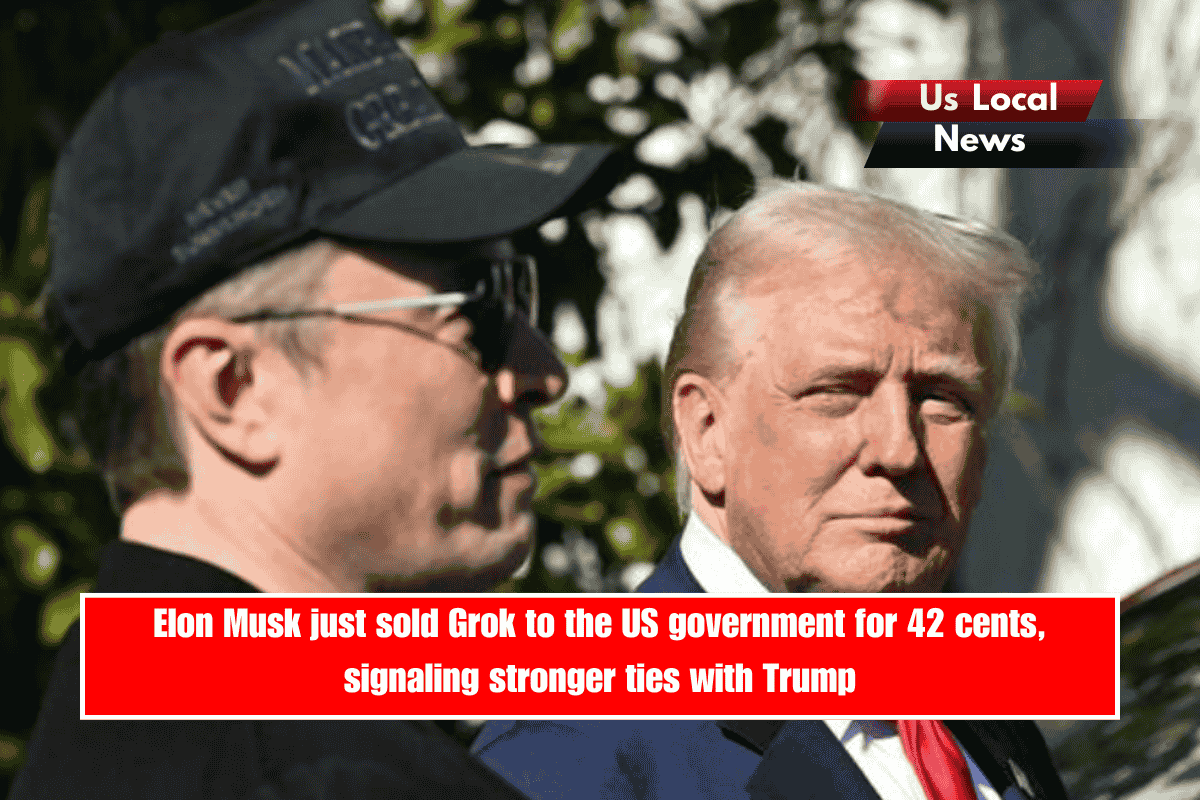Donald Trump has sued the New York Times for, well, reporting on him.
Rather than charging the Times with a specific libelous act, Trump’s lawsuit is simply another of his angry rants.
According to the lawsuit, he is suing “one of the worst and most degenerate newspapers in the history of our country, becoming a virtual’mouthpiece’ for the Radical Left Democrat Party”. And so on.
At the very least, he sued the Wall Street Journal’s parent company for reporting on Trump’s birthday message to Jeffrey Epstein (which Trump continues to deny is his, despite the fact that it appears in Epstein files released by a US House committee).
Last year, Trump sued ABC and its host George Stephanopoulos for claiming that Trump was found liable for rape rather than “sexual abuse” in the civil suit filed by E Jean Carroll. The network settled for $16 million.
Trump sued CBS, alleging that they edited an interview with Kamala Harris on 60 Minutes to make her sound more coherent. CBS also agreed to pay $16 million.
Trump has a long history of defamation lawsuits, which he learned from Roy Cohn, one of America’s most notorious legal bullies.
In the 1980s, Trump sued Pulitzer-winning Chicago Tribune architecture critic Paul Gapp for $500 million for criticizing Trump’s plan to build the world’s tallest building in Manhattan, a 150-story tower that Gapp called “one of the silliest things anyone could inflict on New York or any other city”.
Trump claimed that Gapp had “virtually torpedoed” the project and subjected him to “public ridicule and contempt”. A judge dismissed the lawsuit because it involved protected opinion.
However, when a president files a lawsuit, the situation becomes far worse. He is no longer just a person whose reputation can be harmed. He is President of the United States. One of the primary responsibilities of the media in our democracy is to report on and frequently criticize the president.
The legal standard for defamation of a public figure, established in the 1964 Supreme Court case New York Times Co v Sullivan, requires public officials who file such suits to demonstrate that a false statement was made with knowledge of its falsity or reckless disregard for the truth.
That case arose from a libel suit filed by LB Sullivan, Montgomery, Alabama’s police commissioner, against the New York Times for an advertisement in the paper that, while mostly accurate, contained factual errors about the mistreatment of civil rights demonstrators.
The Supreme Court ruled in favor of the Times, concluding that the advertisement was protected speech under the First Amendment and that a higher standard of proof was required to protect robust debate on public affairs.
Trump’s latest lawsuits against the Times and Wall Street Journal are unlikely to succeed under this standard. He would not have won his lawsuits against ABC and CBS had they gone to trial.
However, Trump did not file these lawsuits with the intention of winning in court. He sought victories in the court of public opinion. These lawsuits are a reflection of his performative presidency.
Trump views the settlements with ABC and CBS as vindication of his complaints about the networks.
He is also using his lawsuit against the New York Times to publicize his longstanding grievances with the paper.
His lawsuit against the Wall Street Journal is likely intended to send a message to the Journal’s publisher, Rupert Murdoch, that Trump does not want Murdoch to interfere in the Jeffrey Epstein case.
These lawsuits also alerted the media that Trump could jeopardize their businesses.
Not only is it costly to defend against them, requiring attorneys’ fees, excessive time from senior executives, and efforts to protect the media’s brand and reputation. When a lawsuit is filed by the president of the United States, who has the authority to harm a company by imposing regulations and prosecuting it for any alleged wrongdoings, the potential costs can be even higher.
Which is most likely why CBS caved rather than litigated. Its parent company, Paramount, hoped to sell it for around $8 billion to Skydance, whose CEO is David Ellison. However, Paramount needed the approval of Trump’s Federal Communications Commission, which delayed the sale until the defamation lawsuit was resolved.
This brings us to the core danger of Trump’s reckless use of personal defamation law. The mere possibility of its use, combined with Trump’s other retaliatory powers, has the potential to chill media criticism of Trump.
We don’t know how much criticism has been suppressed thus far, but it’s worth noting that a CBS News president and the executive producer of 60 Minutes resigned over CBS’s handling of the lawsuit and settlement, presumably because they felt management was limiting their ability to cover Trump fairly and freely.
Among the concessions CBS’s owners made to the Trump administration was to hire a “ombudsman” to police the network against so-called bias – and the person they hired was Kenneth R Weinstein, the former president and CEO of the conservative Hudson Institute thinktank.
It’s also possible that CBS terminated Stephen Colbert’s contract, despite the fact that Colbert’s show is the most watched late-night comedy show on television. He is also one of Trump’s most outspoken critics.
If we needed any more proof, ABC pulled another popular late-night critic of Trump, Jimmy Kimmel, from the air on Wednesday after Kimmel said in a monologue earlier this week that “[w]e hit some new lows over the weekend with the Maga gang desperately trying to characterize this kid who murdered Charlie Kirk as anything other than one of them and doing everything they can to score political points from it.”
ABC announced the move after FCC Chairman Brendan Carr appeared to threaten ABC and its parent company Disney for airing Kimmel’s monologue, ominously saying, “We can do this the easy way or the hard way.”
Jeff Bezos, Amazon’s executive chairman and owner of the Washington Post, has muzzled the paper’s editorial page, prohibiting it from endorsing Kamala Harris in the 2024 election and imposing stringent criteria on all editorials and opinion columns, prompting the resignation of its opinion page editor and a slew of its opinion writers.
Trump has not sued the Washington Post for defamation, but Bezos is likely aware of Trump’s potential to harm his various businesses and wants to avoid Trump’s wrath.
Make no mistake. Trump’s efforts to silence media criticism of him and his administration are another example of his anti-democratic behavior.
What can be done? Two important steps are required.
First, when a president of the United States seeks to use defamation law against a newspaper or media platform that criticizes him, the standard set by New York Times v. Sullivan should be much higher.
Instead of requiring him to prove that he made a false statement with knowledge of its falsity or reckless disregard for the truth, he should have to prove that the false statement materially harmed his ability to perform his official duties.
Better yet, a president should have no legal standing to file a defamation suit. He does not need to bring them. His office already gives him enough – if not too much – power to suppress criticism.
Second, antitrust regulators should not allow large corporations or ultra-wealthy individuals with multiple business interests to acquire major newspapers or media platforms. They cannot be trusted to prioritize the public’s right to know over their own financial interests in a variety of industries.
The world’s richest person was granted permission to purchase X, one of the world’s most influential news platforms, and has transformed it into a cesspool of rightwing lies and conspiracy theories.
CBS is now led by the son of the world’s second richest person.
The Washington Post is now owned by the fourth richest person.
ABC is owned by the Disney Corporation, which has a diverse portfolio of businesses.
The issue is not concentrated wealth per se. The truth is that these business empires may be more important to their owners than the public’s right to know.
If Democrats regain control of Congress next year, they should include these two initiatives in legislation.
Democracy relies on a fearless press. Trump and the media that has given in to him are jeopardizing it, undermining our democracy.
Robert Reich, a former US secretary of labor, is a professor of public policy emeritus at the University of California, Berkeley. He is a Guardian US columnist and his newsletter is at robertreich.substack.com. His new book, Coming Up Short: A Memoir of My America, is out now









